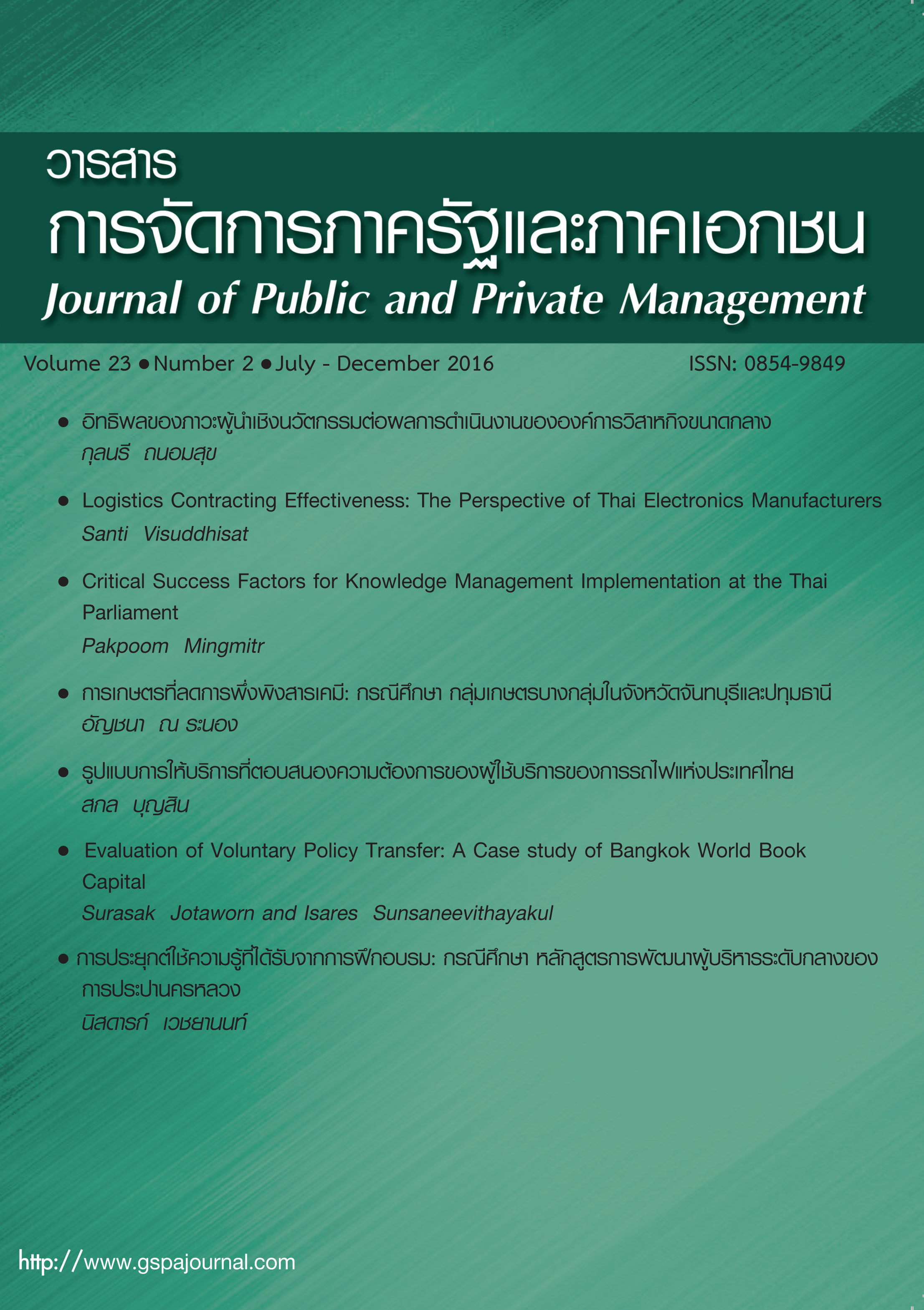Knowledge Transfer in Training: Bangkok’s Metropolitan Waterworks Authority Case Study
Keywords:
Transfer of training, training evaluation, the result evaluation of training, training designAbstract
This study aimed to examine the transfer of acquired knowledge from the training, to investigate the influential factors on the transfer of training, as well as to evaluate the training results on reaction level, learning level and behavior level. The study on Metropolitan Waterworks Authority’s (MWA) middle management training program consisted of ninety-four trainees, and employed various measurement tools, including a questionnaire survey, observation and interviews. The result evaluation on reaction level and learning level utilized the secondary data retrieved from the project outcome report; while the result evaluation on behavior level, which is the transfer of training, utilized the data retrieved from a questionnaire survey and 360-degree interviews. In addition to the descriptive data analysis (mean and standard deviation values), multiple regression analysis was utilized to test the hypotheses, and correlation coefficient was employed to test the relationships among variables.
The results indicated that the trainees most successfully transferred the acquired knowledge from the training to the directly relevant works and the equally difficult works, respectively. Regarding the behavioral changes, supervisors recognized the trainees’ improvements in working ability and outcomes, integration of knowledge, courage in making a decision, and leadership. Lastly, the most influential factor on transfer of training was trainees’ ability and motivation.



